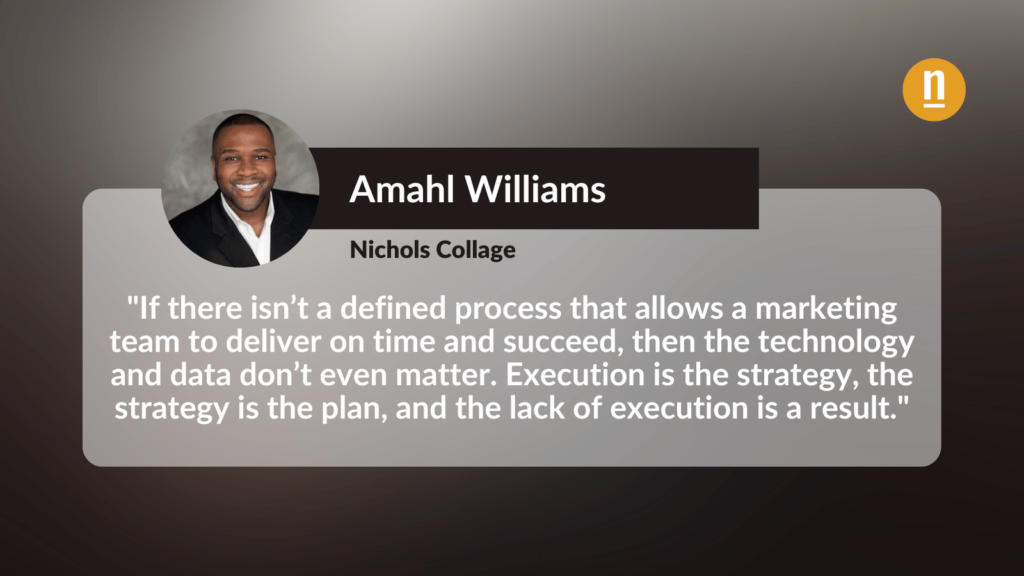Do you struggle with creating high-quality content consistently? Discover how content creation services can help you measure success and get the results you’re looking for.
Importance of Measuring Success After Investing in Content Creation Services
Investing in content creation services can be a game-changer for any business. However, it’s important to note that it’s not just about the money spent but also the outcomes achieved. Keeping this in mind, measuring the success of this investment is crucial. It helps businesses assess if they’re getting their money’s worth and fine-tune their content marketing strategies for better results.

Let’s examine why measuring success after this investment is vital for businesses that want to thrive in today’s competitive landscape:
- ROI measurement: Measuring ROI (return on investment) helps businesses determine whether this investment is profitable. This evaluation helps optimize the budget and decide which campaigns provide a higher return on investment.
- Identify best-performing content: Taking this step helps businesses to understand which types of content resonate with their audience, which content is most effective in driving traffic, leads, and sales, and which is not. This information allows businesses to optimize content creation and focus on creating the most effective content to achieve their goals.
- Refine content strategy: With this measurement, businesses can refine their content strategy, messaging, and targeting to achieve better results. Doing so allows companies to identify weaknesses in their content marketing strategies and make improvements.
- Identify areas of improvement: Whether targeting, enhancing messaging, or creating more compelling content, understanding where to make enhancements could lead to more successful content marketing campaigns.
- Budget allocation: By understanding which content marketing campaigns provide the highest return on investment, companies can adjust their budgets to maximize the impact of their marketing efforts.
Key Metrics for Measuring the Success of Content Creation Services
Businesses can pinpoint their strengths and weaknesses and use this data to make informed decisions to reach their objectives. However, with so many metrics available, it can be tough to know where to start. Don’t worry – we’ve got you covered! Here’s a breakdown of the key metrics you need to focus on to measure your success.
Increased Web Traffic & Engagement
Imagine a world where your website is bustling with visitors and engagement is at an all-time high. Sounds like a dream, right? Well, it doesn’t have to be! Increased web traffic and engagement are two of the most critical metrics to measure your success, and they can make all the difference.
This metric quantifies the number of visitors to your website and assesses how engaged they are with your content. So, if your web traffic and engagement rates are soaring, your content strikes a chord with your audience.

Tools like Google Analytics come in handy to keep track of this crucial metric. They provide a wealth of detailed information about website traffic, including visitors, page views, bounce rates, and much more. Additionally, you can monitor engagement metrics, like time on the page, click-through rates, and social shares. Doing so ensures your content holds your audience’s attention.
Higher Search Engine Rankings
The digital landscape is a competitive arena. The key to success is getting your website to rank high in search engine result pages (SERPs) for specific keywords. Why? As your website’s ranking increases, it gains greater visibility among potential customers, increasing the likelihood that they will click through and explore your content.
Luckily, tools like Ahrefs, SEMrush, or Moz make it easier to measure this critical metric. They provide detailed information about your website’s search engine rankings and those of your competitors. Additionally, you can track the keywords you’re targeting and monitor your progress to ensure your website stays on top of the search engine game. Let’s conquer those SERPs and attract those potential customers!
Conversion Rates & Sales
Are you ready to see your website’s visitors turn into customers and subscribers? The magic lies in measuring your conversion rates and sales metrics. These metrics measure how many people are taking action on your website, like purchasing or filling out a form. So, if you see a spike in conversion rates and sales, your website effectively persuades visitors to take action and engage with your content.
Analytics tools allow you to track specific actions on your website, like form submissions and purchases, and gather valuable insights. Additionally, tools like Crazy Egg help you track user behavior and identify areas where visitors may get stuck or drop off. That way, you can proactively improve your website’s performance.
Social Media Engagement & Reach
Are you interested in discovering if your social media strategy is gaining momentum? Engagement and reach metrics can give you valuable insights. These metrics measure your audience’s engagement with your social media content and how far your content reaches. Suppose you notice a surge in social media engagement and reach. In that case, your social media strategy is on point, and your content captivates your audience.
Tools like Hootsuite or Sprout Social can be your best allies for measuring these metrics. They provide detailed information about your social media engagement, reach, and competitors’ metrics. Tracking specific metrics like likes, shares, comments, and followers can give you a deeper understanding of your audience’s interests. It can also help you tailor your strategy to keep them engaged.
Strategies for Using Content Creation Services to Measure Success
Looking to boost your content marketing strategy? Professional content creation services can be a game-changer for businesses. But how can you tell if you’re getting your money’s worth? Here are some strategies to gauge the effectiveness of these services. With these tips, you can determine whether your content creation service is making a real impact!

Setting Clear Goals & Objectives
Setting clear goals and objectives is a critical first step when crafting a content strategy. By establishing your objectives upfront, you can ensure that your content aligns with your overall business objectives and is tailored to meet the specific needs of your target audience.
Additionally, when crafting your goals, it’s essential to keep the SMART criteria in mind. This acronym stands for specific, measurable, achievable, relevant, and time-bound, and it’s a useful framework for creating meaningful and realistic goals.
By adhering to these criteria, you can ensure that your objectives are specific, attainable, and tied to a specific timeframe, making it easier to measure the effectiveness of your content strategy.
Identifying clear goals and objectives can significantly impact the success of your content marketing efforts. By setting specific goals, you can evaluate the effectiveness of your strategy and determine whether it’s delivering the desired outcomes.
These strategies, in turn, enable you to refine your content approach, ensuring that you are reaching the right audience, delivering the right message, and achieving your intended results. With a well-defined content strategy tailored to your target audience’s needs, you can build a strong online presence, increase engagement, and drive conversions.
Identifying Key Performance Indicators (KPIs)
Measuring the effectiveness of your content marketing efforts involves establishing clear goals and objectives that align with your business’s desired results. Once you have defined your goals, the next step is to identify the key performance indicators (KPIs) you’ll use for tracking your progress. KPIs should be specific, measurable, and relevant to your goals. They should also be trackable over time and actionable, allowing you to make data-driven decisions.
Common KPIs for content marketing include website traffic, engagement metrics, social media metrics, conversion rates, and revenue generated from content. Website traffic indicates the number of visitors to your website, while engagement metrics track how visitors interact with your content, such as time on page and bounce rate.
Social media metrics track engagement on social media platforms, such as likes, shares, and comments. Conversion rates measure how many visitors take a desired action, such as filling out a contact form or purchasing. Lastly, revenue generated from content tracks how much revenue is directly attributable to your content marketing efforts.
Using Analytics Tools to Track KPIs
Analytics tools have become indispensable to digital marketing in today’s data-driven world. They enable marketers to track key performance indicators (KPIs) and measure the effectiveness of their content strategies.
One of the most widely used free analytics tools is Google Analytics, which provides invaluable insights into website traffic and engagement metrics such as time on page and bounce rate. This tool can help you optimize your content and website for a better user experience and drive more traffic.
Social media platforms also offer built-in analytics tools that help marketers track engagement metrics such as likes, shares, and comments. These metrics provide valuable information on how users interact with your content and can help you tailor your social media strategy for better engagement.
Additionally, marketing automation platforms like HubSpot provide advanced analytics capabilities that enable you to track conversion rates and revenue generated from your content. By leveraging these tools, you can better understand your audience and optimize your content strategy for maximum impact.
Regularly Reviewing & Analyzing Data to Make Informed Decisions
Excelling in content marketing involves moving beyond simply setting goals and tracking KPIs. Regularly reviewing and analyzing your data is crucial to success. By examining data, you can uncover hidden trends and patterns that would have otherwise gone unnoticed. It’s like putting on a pair of X-ray glasses that reveal what lies beneath the surface.

With this knowledge, making informed decisions and fine-tuning your strategy to optimize results is possible. Failure to analyze data can lead to mediocre content and poor outcomes. In contrast, analyzing data can be the key to producing content that stands out and captivates your audience.
Data analysis allows you to identify areas where improvement is needed and adjust your tactics accordingly to achieve better results. If you want to thrive in the fiercely competitive content marketing arena, don’t underestimate the power of data analysis.
Measuring ROI
Have you ever invested your time, energy, and money into creating killer content, only to hear crickets chirping in response? It’s a frustrating feeling, right? Measuring your content marketing’s ROI is the key to determining whether your efforts are worth it.
To calculate your ROI, compare the cost of creating and distributing your content with its generated revenue. It’s like putting on your detective hat to solve the mystery of whether your content marketing delivers a positive return on investment. And if it’s not, no worries! Calculating ROI also serves as a compass to adjust your strategy and steer you toward better results.
Measuring the success of your content requires more than just calculating ROI. Set clear goals and objectives, identify key performance indicators, use analytics tools to track KPIs, regularly review and analyze data, and measure ROI. By following these strategies, businesses can unlock the secrets to evaluate the effectiveness of their content marketing efforts and make informed decisions on how to level up their strategies.
Tips for Optimizing Results
In today’s world, businesses must have a strong online presence to stay competitive. An effective way to do this is by creating top-notch content that captures the attention of your target audience. However, producing high-quality content is no easy feat, requiring significant time and effort.
With so many responsibilities to juggle, finding the time to create engaging content can be a challenge. Fortunately, various solutions are available, such as outsourcing to professional writers or using tools to assist with content creation. These options help businesses create content that resonates with their audience and drive traffic and conversions.
Maximizing your ROI in content creation involves following some best practices. For instance, it’s crucial to understand your target audience and create content that aligns with their interests and needs. Additionally, keeping track of your content performance and analyzing your metrics can help you identify what’s working and needs improvement. By taking these steps, businesses can ensure that their content creation efforts are effective and worthwhile in the long run.
Level-Up Content Strategies
Partnering with a content creation service has several advantages. But one of the most significant benefits is leveling up your content strategy. Rather than working alone, engaging experienced content creators to collaborate with can result in a fresh perspective and innovative ideas for your brand.
This engagement can help you:
- refine your content marketing goals
- produce high-quality, relevant content that resonates with your target audience
- enhance your brand’s online presence
- research and analyze your target audience
- create content that aligns with your brand’s voice and objectives
With their expertise, they can suggest new content formats and distribution channels that can help increase engagement and drive traffic. This collaboration also allows you to streamline your content creation process, ensuring that your brand consistently delivers quality content.
SME Interviews
Interviewing subject matter experts (SMEs) in your industry is a powerful way to enhance the credibility and authority of your content. With their wealth of knowledge and experience, SMEs can provide valuable insights and help establish your brand as a thought leader.

Through SME interviews, you can tap into the expertise of professionals in your field and gain access to a wide range of information to produce informative and engaging content. Additionally, incorporating their opinions and perspectives in your content can help differentiate your brand from competitors and establish a reputation for being a reliable source of information.
Conducting these interviews improves the quality of your content and provides other benefits. For example, SMEs may share their insights and expertise with their audiences, increasing their reach and visibility. Furthermore, building relationships with SMEs can lead to collaboration, networking, and future partnerships. With these interviews, you offer valuable content to your audience and position yourself as a knowledgeable and respected figure in your industry.
Roll-Out Surveys
Survey tools have grown in popularity among marketers and content creators to obtain valuable feedback and insights from their target audience. By creating and distributing surveys, you can better understand your audience’s pain points, interests, and preferences. Use this data to produce content that resonates with your audience and caters to their needs.

A key advantage of using survey tools is the ability to interact directly with your audience and provide them with a voice. By demonstrating that you value their feedback and opinions, you can establish trust and loyalty, which may result in increased engagement and advocacy for your brand.
Survey data can also inform your overall content strategy by identifying new topics and formats that will appeal to your audience and enhance traffic and engagement on your website or social media platforms. Incorporating survey tools into your content creation process can provide a competitive advantage and foster a more robust relationship with your audience over time.
Content Repurposing
Repurposing content is an effective way to create fresh, engaging content that can attract a wider audience. This technique involves transforming existing content, such as blog posts or podcasts, into different formats, such as videos, infographics, or social media posts. By doing so, you can present your ideas in a new and exciting way while also reaching new audiences who may prefer different types of content.
This approach can also save time and resources, as you can use your existing content as a foundation for new material. Repurposing content can reinforce key messages and ideas by presenting them in different contexts and formats.
Adopting this strategy can improve your content marketing efforts and build a strong online presence that resonates with your target audience.
Consistently Post & Promote Content
Creating engaging content isn’t just about producing high-quality content but also about consistently posting it. Consistency plays a crucial role in building a loyal following and establishing your brand as a reliable resource in your industry. With the help of content creation services, you can stay on top of your content calendar and ensure your content is regularly posted. These services can provide valuable assistance in producing quality content and maintaining a consistent posting schedule.
Apart from content creation, promotion is also essential in ensuring that your content reaches a broader audience. This partnership can help promote your content across various channels, including email marketing, paid advertising, and social media. By leveraging these channels, businesses and individuals can increase their content’s reach and engagement, attract new customers, and establish their brand as a reliable resource in their industry.
Use SEO Best Practices

SEO best practices are crucial for businesses wanting to increase their visibility and attract more website traffic. SEO involves optimizing your content to rank higher in search engine results pages (SERPs) through relevant keywords and other techniques. By implementing effective SEO strategies, businesses can improve their chances of being found by potential customers and drive more website traffic.
However, creating high-quality and engaging content is equally important. By producing content that resonates with its target audience, businesses can build a loyal following and establish themselves as thought leaders.
Accomplish this by consistently posting and promoting their content and ensuring it’s optimized for SEO. By combining SEO best practices with high-quality content creation, businesses can build a strong online presence and connect with their target audience meaningfully.
The Art of Measuring Success: Why Businesses Need to Invest in Content Creation Services
In today’s digital age, content creation has become a crucial component of businesses’ marketing strategies. Measuring success after investing in content creation services ensures companies get the most out of their investment.
By setting clear goals and identifying key performance indicators, businesses can track metrics such as web traffic, engagement, search engine rankings, conversion rates, sales, and social media reach to determine the effectiveness of their content strategies. Analytics tools can help track these KPIs, and regular review and analysis of the data can help businesses optimize their content creation efforts and measure ROI.

